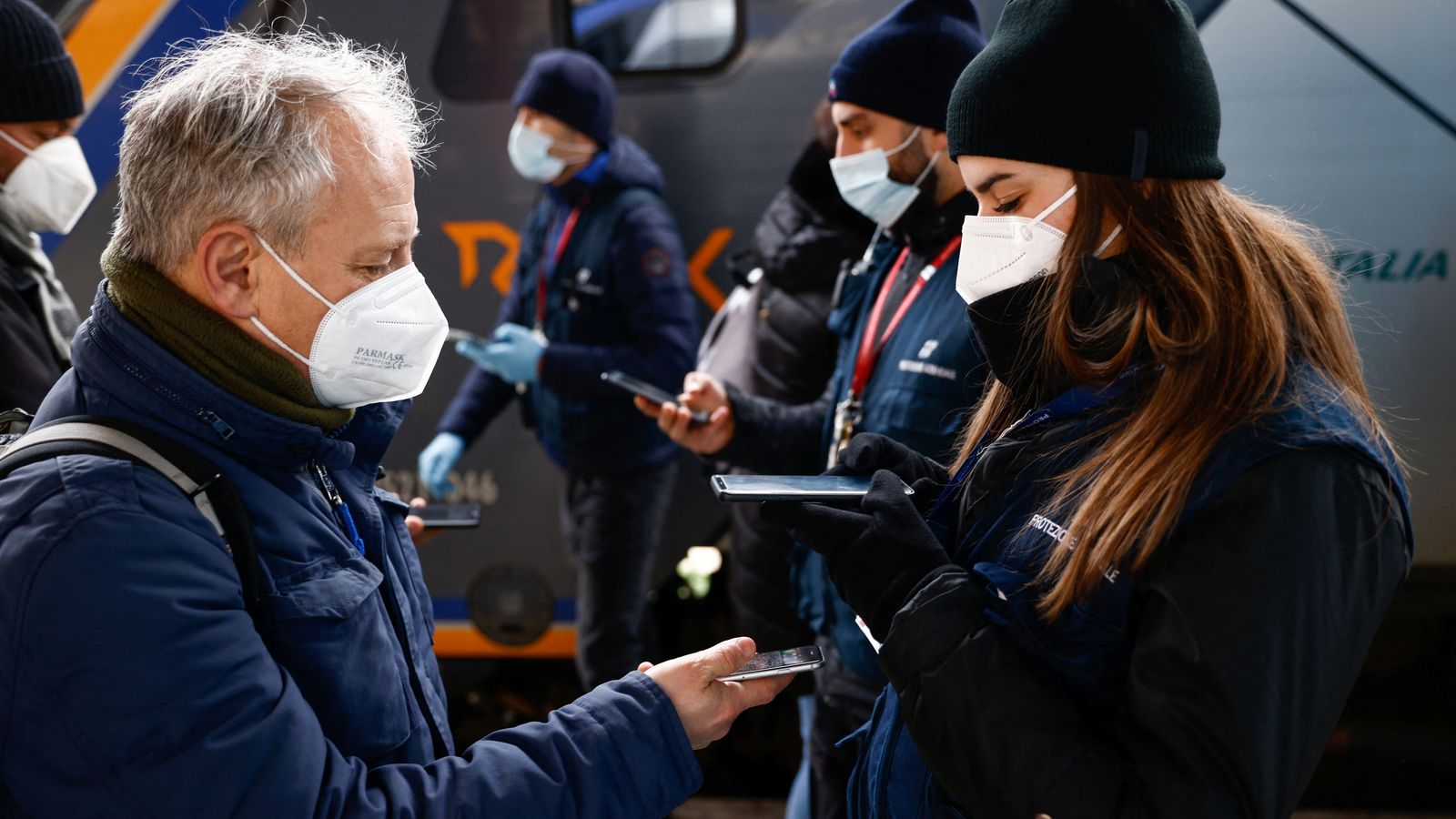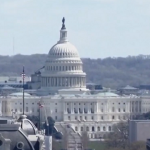Italy’s unvaccinated are facing tougher coronavirus restrictions, as the country faces a surge in the number of cases.
People wanting to use public transport, coffee shops, hotels, gyms and a number of other everyday venues now have to prove they have been vaccinated or that they have recovered from a recent COVID infection.
Previously, proof of a negative coronavirus test was enough to use these services.
It comes a month after Italians were told that vaccination or proof of recent recovery would be required to attend sports events, concerts, theatres, and indoor restaurants.
Please use Chrome browser for a more accessible video player
The number of new daily COVID-19 cases soared past 100,000 in late December and Sunday’s figure was just over 155,000.
Vaccination rates are high, with 86% of those over 12 being fully vaccinated and nearly 75% of those eligible having received a booster.
But two million of the country’s 60 million people are currently infected with the virus, a situation that is hitting essential services.
COVID-19: Private hospitals to help NHS cope with Omicron strain in new deal
COVID-19: Boris Johnson dodges question on whether he attended Downing Street party while country was in lockdown
COVID: Boris Johnson says UK is making ‘great progress’ on Omicron and confirms ministers are considering cutting isolation period
Transport, health, and schools are among the worst-affected, with many workers isolating.
Live COVID updates as study reveals why some people seem to avoid virus
There are some 16,000 people in hospital with COVID-19, and 1,600 of those are in intensive care, according to Italy’s health officials, who have said that around two-thirds of those being admitted to hospital are unvaccinated.
Other restrictions on Italians include outdoor face covering mandates, and the requirement to wear the more protective FFP2 masks on public transport.
People aged over 50 will be required to be vaccinated from next month, although Italy’s prime minister Mario Draghi has been criticised for what is seen as a toothless mandate, with fines for non compliance starting at just €100.






















